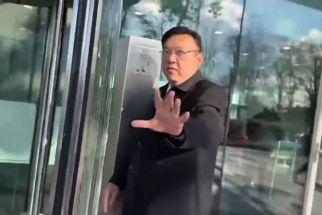Timely delivery

September 15, 2005 | 12:00am
A buyer may disregard the terms of the contract of sale when there is late delivery of the subject of the sale if time is of the essence therein. But when is time of the essence in a contract? This is answered in this case of LSC.
LSC is a domestic coastwise shipping corporation owning cargo vessels. Sometime in 1989, it asked BJM International (BJMI) its supplier of marine engine spare parts for a quotation for various machine parts. Pursuant thereto, BJMI furnished LSC a quotation of several parts on May 31, 1989. Among the parts quoted was a cylinder liner valued at P477,000. The offer stipulated that delivery is within two months after receipt of the firm order and payment is 25 percent upon delivery with the balance payable in five bi-monthly equal installments not to exceed 90 days.
Thereafter, or on November 2, 1989 and January 15, 1990, LSC issued to BJMI Purchase Order No. 13839 and 14011 respectively for the purchase of two cylinder liners to be used in its cargo ship MV Dadiangas. The two purchase orders did not state the date of the cylinder liner’s delivery. They only stated the term of payment as "25 percent upon delivery, balance in five bi-monthly equal installments". And with respect to Purchase Order No. 13839 for the first cylinder liner, LSC issued to BJMI ten postdated checks instead of paying the 25 percent down payment. The first check postdated January 18, 1990 was even dishonored prompting BJMI to return all the checks to LSC.
Nevertheless, BJMI imported the two cylinder liners from its principal in Japan by opening a letter of credit on 23 February, 1990. Then on April 20, 1990, BJMI through its sales manager delivered the cylinders liners at LSC’s warehouse. The sales invoices evidencing the deliveries contain the notation, "subject to verification" under which the signature of LSC’s warehouseman appeared.
On November 15, 1990, BJMI sent a Statement of Account to LSC containing all the items the latter has purchased including the two cylinder liners. LSC paid for all the items except the cylinder liners. Despite subsequent demands, LSC still did not pay them. Instead it offered to pay only P150,000 for the cylinder liners claiming that as they were delivered late and due to the scrapping of MV Dadiangas, it would just have to sell the liners in Singapore and pay the balance from the proceeds of the sale.
Since the parties could not settle the matter, BJMI was forced to sue LSC in the Regional Trial Court of Makati (RTC) for payment of the value of the cylinder liners plus interest, damages and attorney’s fees. In its answer, LSC alleged that time was of the essence in the delivery of the cylinder liners and that the delivery of said items on April 20, 1990 was late as BJMI committed to deliver them within two months after receipt of the firm order. It argued that the quotation embodied the offer from BJMI while the purchase orders represent its acceptance of the proposed terms of the contract of sale. Was LSC correct?
No. In determining whether time is of the essence in a contract, the ultimate criterion is the actual or apparent intention of the parties; and before time may be so regarded by the court, there must be a sufficient manifestation in the contract itself or the surrounding circumstances of that intention. The principle that contracts are the law between the contracting parties is tempered by the rule that the intention of the parties is primordial and once the intention of the parties has been ascertained, that element is deemed as an integral part of the contract as though it has been expressed in unequivocal terms.
In this case, the documents themselves cannot be said to embody the terms of the sale of the cylinder liners. There are significant differences in the terms stated in the formal quotations of BJMI and the purchase orders of LSC covering the two cylinders. LSC’s purchase orders (no. 13839 and 14011) made no mention at all of the due dates of delivery and of the 25 percent down payment of the first and second cylinder liners respectively. The formal quotation provided by BJMI represented the negotiation phase of the contract of sale. As of that time, the parties had not yet reached an agreement as regards the terms and conditions of the contract. LSC could very well have ignored the offer or tendered a counter-offer to BJMI, while the latter could have, under the pertinent provision of the Civil Code, withdrawn or modified the same. Notably LSC was the one who caused the preparation of the purchase orders that contained terms which are at variance with those stated in the quotation of BJMI. The lack of explanation for such variance only signifies that the parties have in fact renegotiated the terms of the contract. Moreover, as the obscurity in the terms of the contract was caused by LSC when it omitted the date of delivery and varied the term with respect to the due date of the down payment, said obscurity must be resolved against it. As held in the case of Smith, Bell v. Matti 44 Phil. 874, when the time of delivery is not fixed or is stated in general and indefinite terms, time is not of the essence of the contract and delivery shall be made within a reasonable time, in the absence of anything to show that an immediate delivery is intended. If time is really of the essence, LSC should have stated the same in the purchase orders and not merely relied on the quotation issued by BJMI considering the lapse of time between the issuance of said quotation and its purchase orders. Finally even where time is of the essence, a breach of contract in that respect by one of the parties may be waived by the other party’s subsequently treating the contract as still in force. LSC’s receipt of the cylinder liners when they were delivered at its warehouse on April 20, 1990 clearly indicates that it considered the contract to be still subsisting up to that time. LSC had no business receiving the liners if the contract had indeed been cancelled even if said receipt was "subject to verification" (Lorenzo Shipping Corp. vs. BJ Mathel International Inc. G.R. 14583, November 19, 2004).
E-mail at: jcson@pldtdsl.net
LSC is a domestic coastwise shipping corporation owning cargo vessels. Sometime in 1989, it asked BJM International (BJMI) its supplier of marine engine spare parts for a quotation for various machine parts. Pursuant thereto, BJMI furnished LSC a quotation of several parts on May 31, 1989. Among the parts quoted was a cylinder liner valued at P477,000. The offer stipulated that delivery is within two months after receipt of the firm order and payment is 25 percent upon delivery with the balance payable in five bi-monthly equal installments not to exceed 90 days.
Thereafter, or on November 2, 1989 and January 15, 1990, LSC issued to BJMI Purchase Order No. 13839 and 14011 respectively for the purchase of two cylinder liners to be used in its cargo ship MV Dadiangas. The two purchase orders did not state the date of the cylinder liner’s delivery. They only stated the term of payment as "25 percent upon delivery, balance in five bi-monthly equal installments". And with respect to Purchase Order No. 13839 for the first cylinder liner, LSC issued to BJMI ten postdated checks instead of paying the 25 percent down payment. The first check postdated January 18, 1990 was even dishonored prompting BJMI to return all the checks to LSC.
Nevertheless, BJMI imported the two cylinder liners from its principal in Japan by opening a letter of credit on 23 February, 1990. Then on April 20, 1990, BJMI through its sales manager delivered the cylinders liners at LSC’s warehouse. The sales invoices evidencing the deliveries contain the notation, "subject to verification" under which the signature of LSC’s warehouseman appeared.
On November 15, 1990, BJMI sent a Statement of Account to LSC containing all the items the latter has purchased including the two cylinder liners. LSC paid for all the items except the cylinder liners. Despite subsequent demands, LSC still did not pay them. Instead it offered to pay only P150,000 for the cylinder liners claiming that as they were delivered late and due to the scrapping of MV Dadiangas, it would just have to sell the liners in Singapore and pay the balance from the proceeds of the sale.
Since the parties could not settle the matter, BJMI was forced to sue LSC in the Regional Trial Court of Makati (RTC) for payment of the value of the cylinder liners plus interest, damages and attorney’s fees. In its answer, LSC alleged that time was of the essence in the delivery of the cylinder liners and that the delivery of said items on April 20, 1990 was late as BJMI committed to deliver them within two months after receipt of the firm order. It argued that the quotation embodied the offer from BJMI while the purchase orders represent its acceptance of the proposed terms of the contract of sale. Was LSC correct?
No. In determining whether time is of the essence in a contract, the ultimate criterion is the actual or apparent intention of the parties; and before time may be so regarded by the court, there must be a sufficient manifestation in the contract itself or the surrounding circumstances of that intention. The principle that contracts are the law between the contracting parties is tempered by the rule that the intention of the parties is primordial and once the intention of the parties has been ascertained, that element is deemed as an integral part of the contract as though it has been expressed in unequivocal terms.
In this case, the documents themselves cannot be said to embody the terms of the sale of the cylinder liners. There are significant differences in the terms stated in the formal quotations of BJMI and the purchase orders of LSC covering the two cylinders. LSC’s purchase orders (no. 13839 and 14011) made no mention at all of the due dates of delivery and of the 25 percent down payment of the first and second cylinder liners respectively. The formal quotation provided by BJMI represented the negotiation phase of the contract of sale. As of that time, the parties had not yet reached an agreement as regards the terms and conditions of the contract. LSC could very well have ignored the offer or tendered a counter-offer to BJMI, while the latter could have, under the pertinent provision of the Civil Code, withdrawn or modified the same. Notably LSC was the one who caused the preparation of the purchase orders that contained terms which are at variance with those stated in the quotation of BJMI. The lack of explanation for such variance only signifies that the parties have in fact renegotiated the terms of the contract. Moreover, as the obscurity in the terms of the contract was caused by LSC when it omitted the date of delivery and varied the term with respect to the due date of the down payment, said obscurity must be resolved against it. As held in the case of Smith, Bell v. Matti 44 Phil. 874, when the time of delivery is not fixed or is stated in general and indefinite terms, time is not of the essence of the contract and delivery shall be made within a reasonable time, in the absence of anything to show that an immediate delivery is intended. If time is really of the essence, LSC should have stated the same in the purchase orders and not merely relied on the quotation issued by BJMI considering the lapse of time between the issuance of said quotation and its purchase orders. Finally even where time is of the essence, a breach of contract in that respect by one of the parties may be waived by the other party’s subsequently treating the contract as still in force. LSC’s receipt of the cylinder liners when they were delivered at its warehouse on April 20, 1990 clearly indicates that it considered the contract to be still subsisting up to that time. LSC had no business receiving the liners if the contract had indeed been cancelled even if said receipt was "subject to verification" (Lorenzo Shipping Corp. vs. BJ Mathel International Inc. G.R. 14583, November 19, 2004).
BrandSpace Articles
<
>
- Latest
- Trending
Trending
Latest
Recommended

April 3, 2025 - 12:00am



























